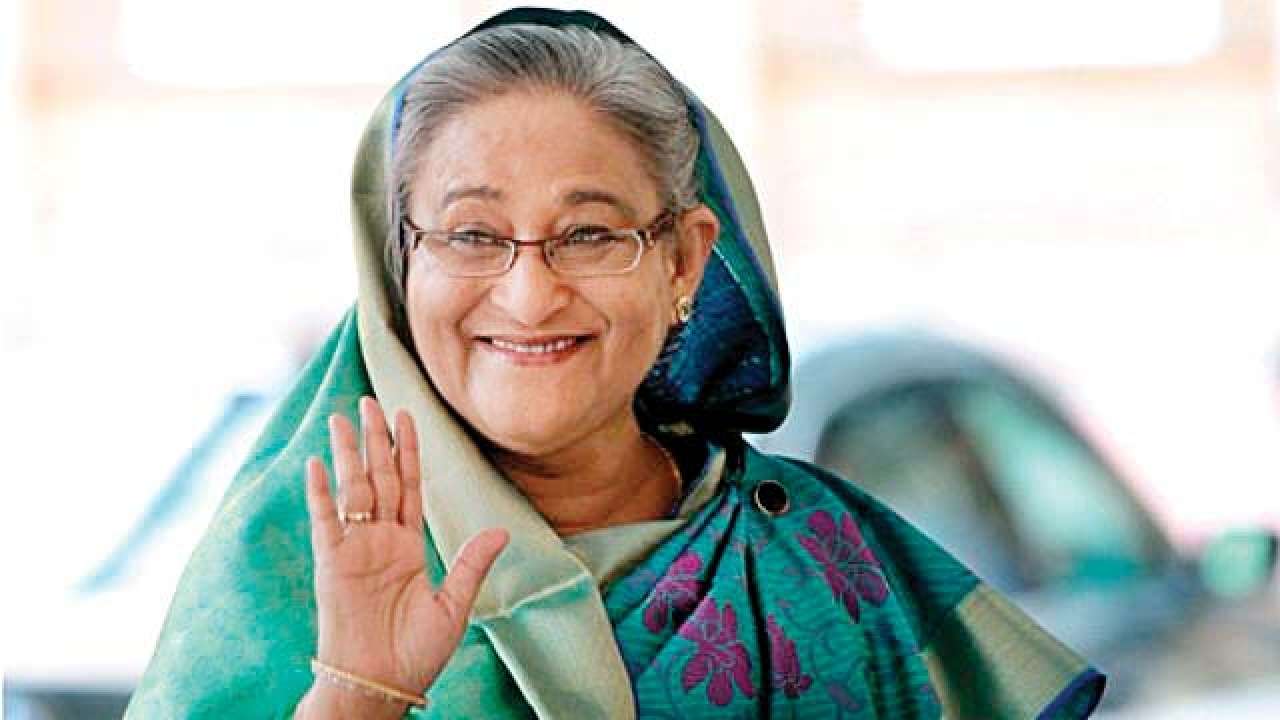
Women in Bangladesh dominate life, unlike in other Muslim nations
At a time when Afghan women are forced out of jobs and schools, and Iranian women are having to shed blood to oppose imposition of hijab, Bengali women in Muslim-majority Bangladesh are enjoying an unusual spell of gender empowerment

At a time when Afghan women are forced out of jobs and schools, and Iranian women are having to shed blood to oppose imposition of hijab, Bengali women in Muslim-majority Bangladesh are enjoying an unusual spell of gender empowerment.
Sources in the ruling Awami League say Parliament Speaker Shirin Sharmin Chowdhury is likely to be the next President of Bangladesh as the party is likely to nominate her just before Mohammad Abdul Hamid steps down. In her mid-fifties, Shirin has a clean image and a brilliant track record as Speaker.
With Sheikh Hasina getting ready to lead her party to power for a record fourth time after having emerged as the country’s longest-serving Prime Minister, Bangladesh will perhaps have the unique distinction of having a woman President and PM once Shirin gets elected.
Women as top achievers
Hasina started off in 2009 with many women ministers in key portfolios: Sahara Khatun (Home), Dipu Moni (Foreign), Matia Chowdhury (Agriculture), Sajeda Chowdhury (Forest & Environment) and later Tarana Halim ( Telecom and Information). While Matia Chowdhury (called Agnikonya) was famous for her fiery speeches, Dipu Moni, now education minister, is famous for taking on Islamist radicals over the teep (bindi) issue , defending her right as a Bengali woman to sport the bindi despite radicals opposing it as un-Islamic.
Also read: Wary Delhi watching Dhaka as trouble brews for Sheikh Hasina govt
Tarana Halim, a former actress-lawyer and a batch-topper in board exams, shot to fame by challenging big business tycoons over corruption in the telecom sector which caused a temporary setback to her brilliant career. But she is back in the Awami League’s powerful central executive committee and leading the charge in the party’s campaign to return to power with her fiery speeches and powerful showing on TV talk shows.
Even the two leading Opposition parties are led by women: BNP by Khaleda Zia and Jatiya Party by Rowshan Ershad.
Not only in politics where scores of younger women are graduating into key positions after strong performance at grassroots but across the spectrum from industry to arts, education to judiciary, women in Bangladesh are ending up as top achievers and upholding the secular values of the 1971 Liberation War that led to the breakup with Islamist Pakistan.
When top dancer Monira Parveen dances as Durga and Dhaka Art Gallery owner goes down in a hail of bullets rather than put on hijab as demanded by JMB terrorists during their 2016 attack on an upscale Dhaka eatery, the undying spirit of Bangladesh women is flagged unambiguously.
Mothers as legal guardians
In a landmark judgement with many ramifications in the Muslim-predominant country, the Bangladesh High Court has ruled that mothers will be treated as legal guardians in filling up government forms like Student Information Forms ( SIF) and nobody can be forced to mention father’s name against their will.
“We fought for this right since I was a university student thirty years ago and finally this is now legal,” said Awami League central committee member and former minister Tarana Halim. An ace lawyer herself, Halim described this judgement as a landmark in the country’s women empowerment with many grassroots ramifications .
The High Court also declared as illegal and unconstitutional possible refusal to provide admit cards to SSC and HSC candidates who have not used their father’s name in the SIF, Deputy Attorney General Amit Das Gupta told the media.
A High Court bench of Justice Naima Haider and Justice Md Khairul Alam, while delivering the verdict on a writ petition, said all citizens have the right to get an education and job under the Constitution.
Deputy Attorney General Amit Das Gupta told mediapersons the government had earlier taken steps so that students could complete SIFs with the name of the father, mother or any other legal guardian. There is no provision that the student must mention the name of his or her father in the SIF, he added.
Lawyer Aynun nahar Siddiqua Lipi appeared for the petitioners Bangladesh Legal Aid and Services Trust (BLAST), Bangladesh Mahila Parishad and Naripokkho who filed the public interest litigation in 2009.
The writ petition challenged the refusals by the different boards of education to issue registration cards to the SSC and HSC candidates, who could not not complete the SIFs with names of their fathers and mothers.
Most divorce applications by women
With divorce on the rise in Bangladesh, this verdict will benefit children staying with single mothers or those abandoned by fathers. More than 20 marital relationships are broken in a day in Dhaka city area, media reports said, underlining that majority of divorce applications were now served by women.
Also read: Bangladesh-Myanmar border tensions add to Sheikh Hasina’s headaches
Women are mostly victims of both physical and mental tortures at their in-laws’. So they are forced to file divorce petition, being unable to bear tortures, Dr Zeenat Huda, Professor, Department of Sociology of Dhaka University, said.
“The Muslim stereotypes of women silently bearing male domination and torture no longer holds true in Bangladesh, because we have a long legacy of gender empowerment,” said top Bangladesh columnist Syed Badrul Ahsan during a recent talk in Kolkata.
This makes Bangladesh unique in the Muslim world, a stark contrast to Pakistan it broke away from.
(Subir Bhaumik is a former BBC correspondent and author of five books on South Asian conflicts.)
(The Federal seeks to present views and opinions from all sides of the spectrum. The information, ideas or opinions in the articles are of the author and do not necessarily reflect the views of The Federal.)

